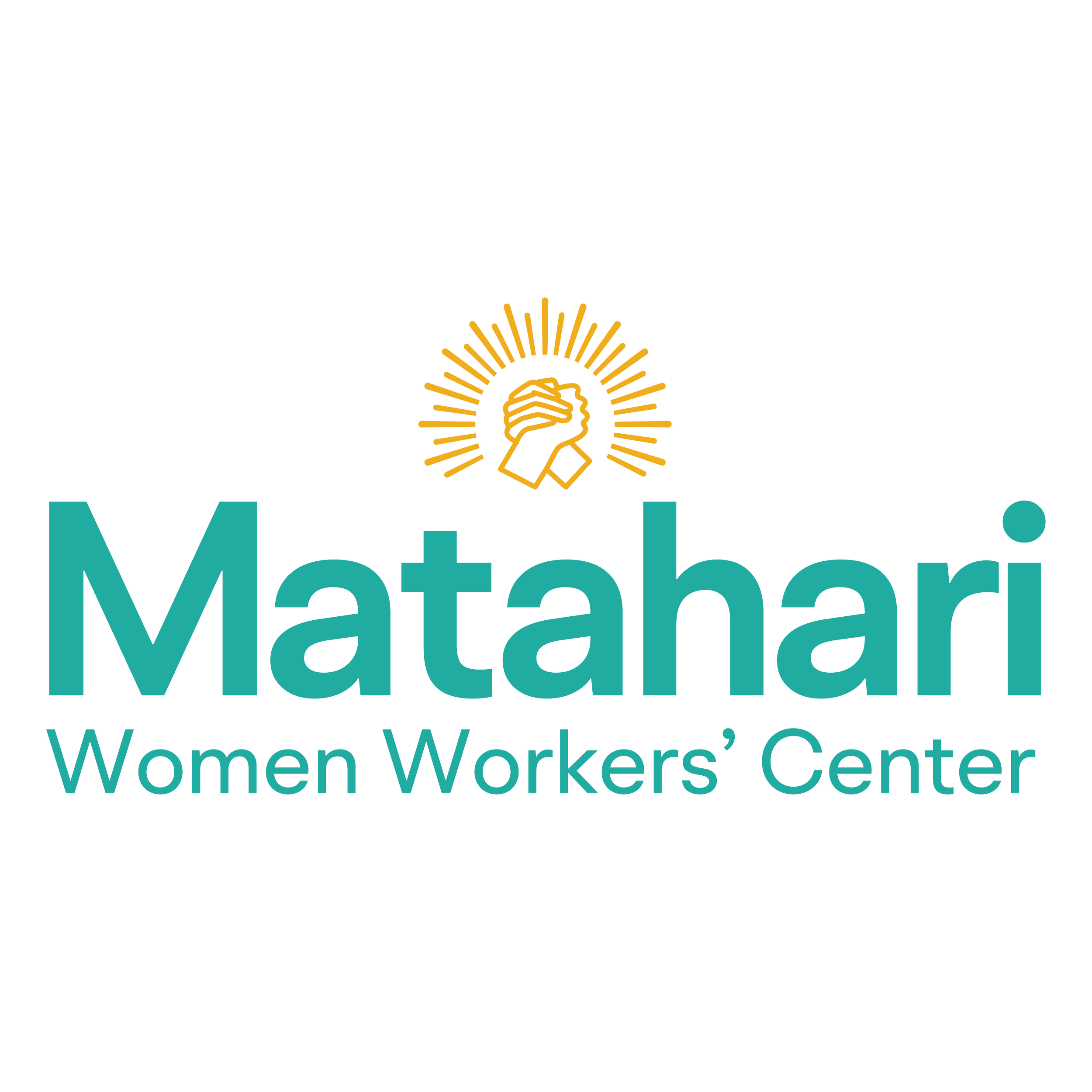Press Release: 06/25/20
Last week, a small group of Matahari member-leaders met at the Harriett Tubman memorial for an action in solidarity with the Movement for Black Lives. Photo by Matahari Artists in Residence: Stephanie Del Castillo & Laura Gonzalez. Boston, MA.
PRESS RELEASE: For Au Pairs and Other Domestic Workers, Victories and Challenges During the Pandemic
FOR IMMEDIATE RELEASE
June 25, 2020
Contact: Jéssica Oliveira, associate@mataharijustice.org, 617-356-1780
Boston, MA — On Monday, the U.S. Supreme Court announced that it would not take up the case involving Cultural Care Au Pair's lawsuit against Massachusetts Attorney General Maura Healey for exemption from the 2014 Massachusetts Domestic Workers Bill of Rights law, leaving in place the U.S. Court of Appeals for the First Circuit’s decision to dismiss the case last December. The announcement ensures that state minimum wage, overtime and other labor protections will continue to apply to au pairs in Massachusetts.
This tremendous victory comes amid a global health pandemic that has disproportionately impacted domestic workers, the majority of whom are immigrant women of color experiencing heightened political and economic inequality and institutionalized racism. According to The U.S. Au Pair Program: Labor Exploitation and the Myth of Cultural Exchange by Janie Chuang, Brazil, Colombia, and Mexico account for three of the top five countries of origin for au pairs. These workers, the majority of whom are young women providing live-in child care for thousands of families across the state, are experiencing uncertainty around the stability of their immigration status, expanded work schedules and responsibilities as families stay home, and increased isolation and exposure to exploitation.
"Whether provided in a home or child care center, by a relative, au pair or nanny, all care labor has value and we must treat all caregivers with dignity and respect,” said Community Labor United Deputy Director Lindsay McCluskey. “Solutions to our child care crisis during and after the pandemic must address the diverse ways and places where childcare happens. Care work is interconnected and if you change one part of the system it has big impacts on other forms of care."
The pandemic further exacerbated deep-seated structural deficiencies and inequities in the care economy. The 2018 report, Shortchanged: The Big Business Behind the Low Wage J-1 Au Pair Program, adds that wage theft, discrimination and exploitation abound within the program, demonstrated by recent Maryland case where two au pairs sued their employers and sponsor-agency for labor trafficking.
Anticipating massive job loss and financial insecurity for workers, Matahari launched a listening campaign at the start of the pandemic to learn how low-wage sectors, primarily domestic work, were being impacted. Findings included that:
40% reported job loss;
71% reported financial stress;
55% reported employment insecurity; and
75% reported stress, anxiety, depression, and other negative mental health impacts.
The National Domestic Workers Alliance (NDWA) additionally released the results of a survey of over 800 Black domestic workers from Boston, New York City and Miami. Locally, the survey was conducted by the Matahari chapter of We Dream in Black, an NDWA project that serves as the political home for Black domestic workers across the country, in partnership with the Institute for Policy Studies. Among other things, it highlighted the personal economic impact and health and safety vulnerability of domestic workers including exposure to Covid-19, lack of medical insurance, and housing insecurity.
As Massachusetts reopens, Matahari is among the community organizations exploring creative, quality, affordable, and just options for working parents. We call on families, caregivers, government officials and community partners to join the fight for sustainable and equitable solutions to the childcare crisis in our state.
###
Matahari Women Workers’ Center is a Boston-based community organization, working to end gender-based violence and exploitation. Founded in 2002, Matahari is a leading force in advancing the rights of women workers, immigrant families, and survivors. Matahari was instrumental in passing the 2014 Massachusetts Domestic Worker Bill of Rights, which extends basic labor protections to nannies, au pairs, adult caregivers, and house cleaners. Matahari is invested in creating sustainable child care solutions that do not leave workers behind, and is currently working with the Care That Works coalition to ensure strong protections for child care workers during reopening. Learn more about our work on Facebook, Twitter and Instagram.

